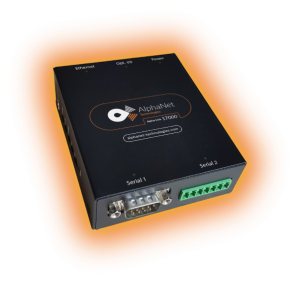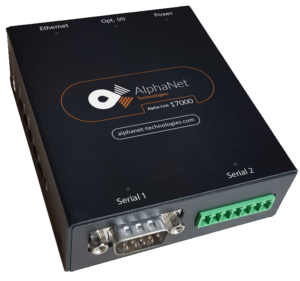Modbus is a serial communication protocol that has been widely used in industrial automation and control systems for decades. A Modbus converter is a device that allows communication between devices using different versions of the Modbus protocol or between Modbus and other communication protocols. With the evolution of technology, there have been several different versions of the Modbus protocol.
This has resulted in the need for Modbus converters, which allow communication between devices that use different versions of the Modbus protocol or between Modbus and other communication protocols. For example, if you have a device that uses Modbus RTU and a device that uses Modbus TCP, you can use a Modbus converter to allow communication between the two devices. The Modbus converter acts as a bridge between the two devices and translates the Modbus protocol from one version to another.
Modbus was originally designed for communication between programmable logic controllers (PLCs) and other industrial devices such as sensors, actuators, and HMIs (Human Machine Interfaces). It is a simple and robust protocol that allows for the exchange of data between devices in a master-slave configuration. The master sends a request to a slave device, and the slave responds with the requested data.
Modbus converters are often used in industrial automation and control systems to connect legacy devices that use Modbus RTU to modern devices that use Modbus TCP. This allows for the integration of new equipment into existing systems without the need for a complete overhaul of the system. Modbus converters can also be used to connect Modbus devices to other communication protocols such as BACnet, Profibus, and CAN bus.
Advantages:
One of the main advantages of using a Modbus converter is interoperability. Modbus converters allow devices that use different versions of the Modbus protocol to communicate with each other. For example, if you have a device that uses Modbus RTU and a device that uses Modbus TCP, a Modbus converter can allow communication between the two devices. This allows for the integration of new equipment into existing systems without the need for a complete overhaul of the system.
Modbus converters also allow for the support of legacy devices. Many industrial automation and control systems still use devices that use the Modbus RTU protocol. However, as technology has evolved, many new devices now use the Modbus TCP protocol. A Modbus converter can allow communication between these legacy devices and modern devices that use the Modbus TCP protocol. This can extend the lifespan of legacy equipment and save money by avoiding the need for a complete system upgrade.
- Improved System Performance
Another advantage of using a Modbus converter is improved system performance. Modbus converters can increase the speed of communication between devices by allowing for faster communication protocols such as Modbus TCP. This can lead to increased efficiency and productivity in industrial automation and control systems.
Modbus converters are also highly flexible. They can be used to connect Modbus devices to other communication protocols such as BACnet, Profibus, and CAN bus. This allows for the integration of different devices and protocols within the same system.
Modbus converters are a cost-effective solution for communication between devices that use different versions of the Modbus protocol or between Modbus and other communication protocols. They are much cheaper than replacing legacy equipment with modern equipment that uses the same communication protocol. In addition, they can be installed quickly and easily, which saves time and reduces installation costs.
- Easy Installation and Configuration
Modbus converters are designed for easy installation and configuration. They usually come with user-friendly software that allows for easy setup and configuration. This means that even users who are not experts in Modbus communication protocols can easily install and configure a Modbus converter.
- Improved System Maintenance
Modbus converters also make system maintenance easier. They allow for easy monitoring of the system and can quickly identify communication issues between devices. This allows for quick resolution of issues and reduced downtime.
Modbus converters are highly scalable. They can support multiple devices, which makes them suitable for large industrial automation and control systems. This means that as the system grows, Modbus converters can be added to support new devices.
Modbus converters are versatile devices that can be used in a wide range of applications. They are used in industrial automation and control systems, energy management systems, and building automation systems. They can be used to connect devices such as sensors, actuators, and HMIs (Human Machine Interfaces).
- Standardized Communication
Modbus converters allow for standardized communication between devices. The Modbus protocol is a standardized protocol that is widely used in industrial automation and control systems. Modbus converters ensure that the devices in the system communicate
When selecting a Modbus converter, there are several factors to consider, including the communication speed, the number of devices that can be connected, the distance between devices, and the type of protocol being used. It is important to select a Modbus converter that is compatible with the devices being connected and that can support the required communication speed and distance.


